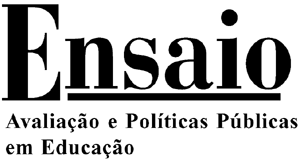Abstract
The investigation seeks to determine the perceptions that underlie a community of university professors about the culture of peace. The scenario is a process of transformation of a violence culture with the responsibility of contributing to the transmission of elements that generates social change. The research follows a qualitative paradigm of interpretative type and the analysis of the results is obtained by the triangulation of an unstructured survey applied to the teachers, who participated freely and voluntarily. People were asked about the episodes that limit or restrict the construction of a culture of peace, the perception they have about the agreements, in order to know if they trust or not in them, and finally, if the peace is considered a life experience that is a part of daily life. The professors mostly agree that Colombians do not trust the peace process because it is not well explained and it has many enemies. They said that the main actors in the war do things that do not support democracy and that they even lie to the citizens. The age was considered as the organizing variable taking into account several elements. In the first place, the periods of violence lived by each of the group of ages were different, the language used by the teachers is different according to the age range. In the second place, the didactics and pedagogies differ between one age and another, and the historical construction of life has different views according to the experience and the years lived.
Perceptions; Culture of peace; Social Change; Peace; Teaching
